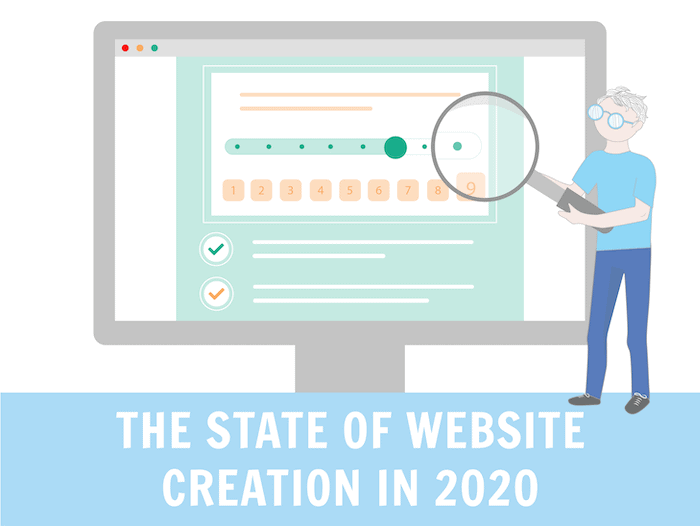This year, the state of the world has moved so much of our lives online, and our team was curious to learn what the general population thought about building websites. Have they considered it? Did they feel they could do it on their own? What tools do they think would help them the most?
For our latest round of research, we decided to ask 1,000 people * around the U.S. their perceptions around creating a website. In the process, we’ve learned some interesting insights and confirmed some of our suspicions, which we’ve outlined below.
COVID Has Sparked Interest in Website Creation
Surprisingly, almost 40% of those surveyed have considered creating a website for a hobby or business since the pandemic began.
That includes nearly 43% of males and 36% of females. The majority in the age range of 18-44: 55% of those 18-29 and 45% of those 30-44.
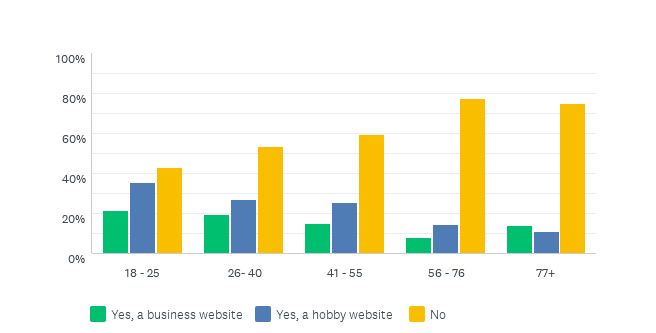
Age breakdown results to the question, “Due to COVID-19, have you considered creating a website for a hobby or business this year?”
The Gender Breakdown on Confidence
But are dream jobs or passion projects being put on hold because consumers lack the confidence to get started on a website? While males are split down the middle, females seem to lack the overall confidence in their ability to create a website, with 64% responding that they would not be confident doing so on their own.
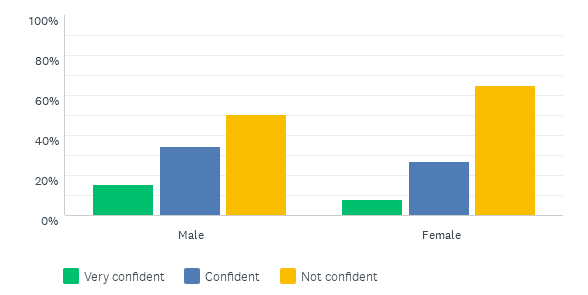
Gender breakdown results to the question, “How confident are you in creating a website on your own?”
Overall, the majority seem to agree on what they feel would be the biggest challenge in creating a website: 53% of males and 60% of females stated that “having the knowledge to create/design a website” would be their biggest hurdle.
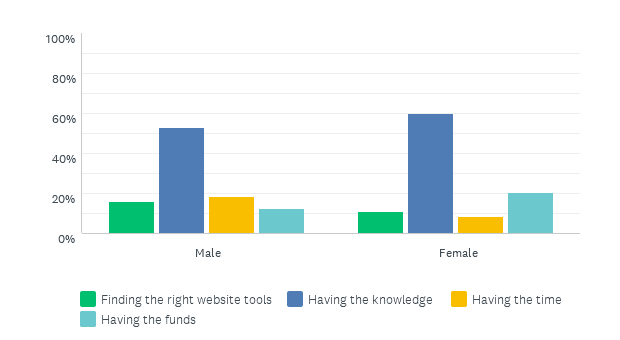
Gender breakdown results to the question, “What do you see as the biggest challenge when creating a website?”
We understand that the general impression is that it’s difficult to build a website from the ground up. Luckily, our team has created a beginner’s guide to set up a website, which would help even the most novice of learners, and have outlined which website builders may be the best for those who are just starting to dip their toes in the world of web development.
How Much Are They Willing to Spend?
The truth is, websites can be built within any budget parameters, which we’ve showcased in a past post. It’s a common misconception that websites are costly to make, and those just starting out don’t want to drop a ton of money right off the bat.
While a custom small business website created by a dedicated designer may start off between $1,000-$3,000, nearly 55% of those surveyed would want to spend $100 or less on building a website for a business venture. More than that, 22% of those would want to create one for free.
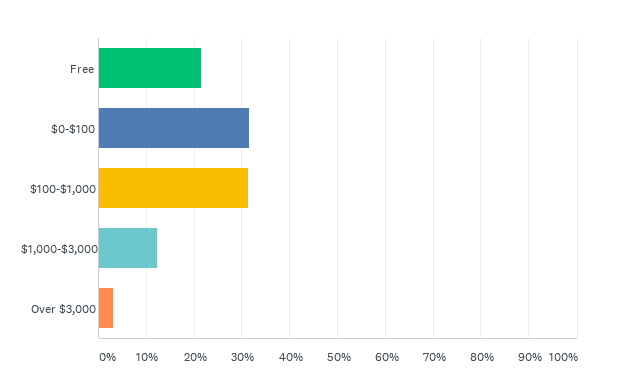
Results to the question, “If you were creating a website for a business venture, how much would you be comfortable spending to get it off the ground?”
If you’re determined to go the free route, we’ve tested free website creators and gave details around what we think are the best options. However, it’s important not to be blinded by the word “free.” If you can afford it, stay away from free plans for your business site, even if it’s a small business. Free plans come with certain restrictions that can give your business website an unprofessional look, such as strange domain names and an obtrusive advert.
What’s the Most Important Feature to Them?
After learning some general understandings of our audience, we were curious about what they felt would be most important when selecting a website builder.
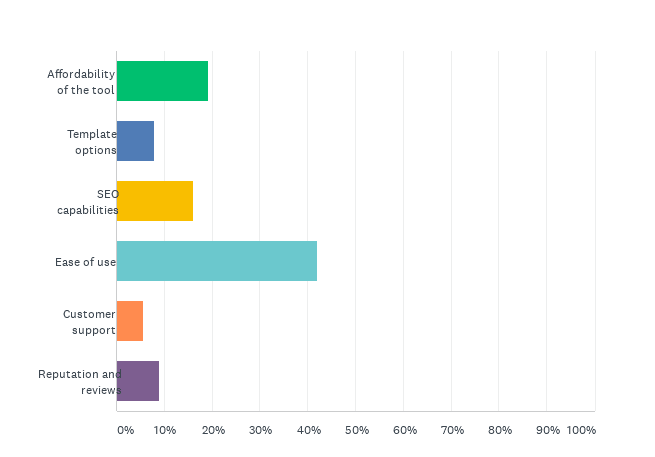
Results to the question, “What factor is most important when selecting a website builder (ex: Wix, WordPress, Squarespace)?”
Knowing what we know now, it’s not a surprise that ‘Ease of Use’ came out on top, with 42% finding it to be the most important. Similarly, ‘Affordability of the Tool’ came in second with 19% of the audience.
Surprisingly, SEO capabilities rounded out the top 3 with 16%. Since the audience was not necessarily a technical one, it looks like the term ‘SEO’ seems pretty widely understood these days. As more and more consumers rely on search engines, this is a big one. SEO helps increase visibility by ranking a site higher on search engines like Google, which leads to more clicks and web traffic. For those interested in diving into the world of search engine optimization, we have a past blog post on best builders and tools for SEO.
There you have it! Despite the various perceptions out there, many U.S. consumers have common concerns and feedback when it comes to creating a website.
At WebsiteTooltester, we already had a feeling that there were common misconceptions surrounding websites, which is why we’ve made it our mission to break down the barriers of confusion and provide information to all types of consumers in an easily-digestible format. These learnings will only propel us further in our efforts to provide the type of information consumers seek when creating a website.
Tell us what you think of our findings below!
* WebsiteTooltester surveyed 1,000 U.S. residents 18+ with an age and gender census balance.
THE BEHIND THE SCENES OF THIS BLOG
This article has been written and researched following a precise methodology.
Our methodology